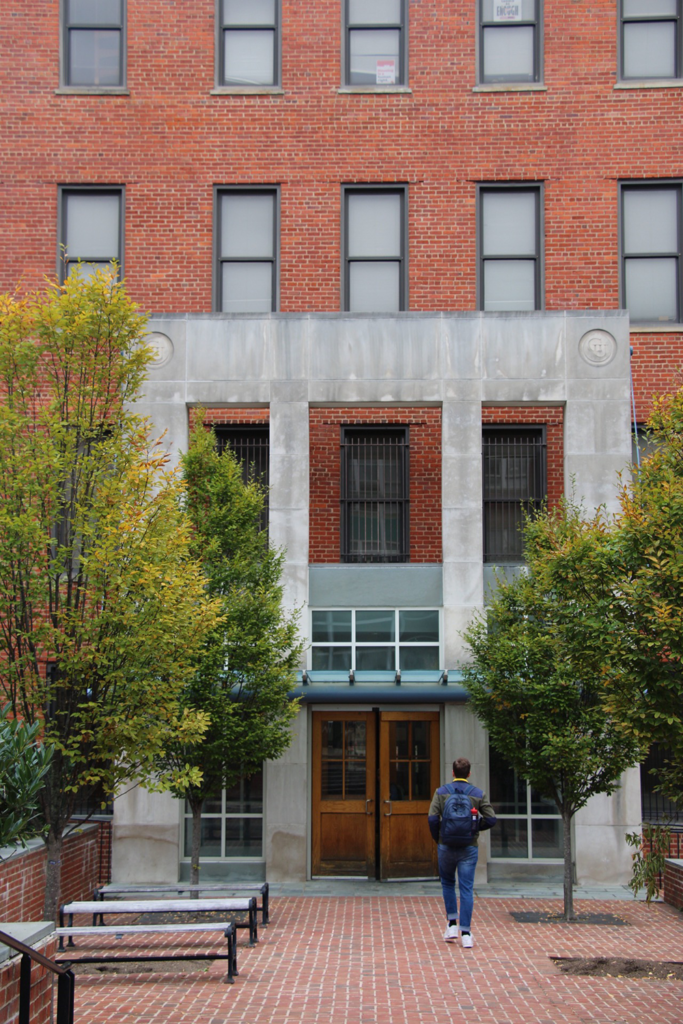Residents in LXR Hall experienced intermittent hot water shortages over the course of the past two weeks until the Office of Planning and Facilities Management fully restored hot water access Oct. 26.

Students began noticing an insufficient volume of hot water beginning around Oct. 15, according to LXR residents Danny Livingston (SFS ’22) and Caroline Finn (COL ’22). Residents filed at least five work requests with facilities within the first week of the hot water disruption beginning Oct. 22. The total number of requests remains unknown.
While residents did not experience a full hot water outage, students endured consistently low water temperatures in recent weeks, according to LXR resident Tina Yin (SFS ’22).
“It wasn’t that there wasn’t hot water. The water just wasn’t hot enough for me to have a warm shower,” Yin said. “There was a day last week where I literally went to Yates to shower because for 48 hours, the water wasn’t hot enough.”
The hot water disruption also corresponded with the recent drop in temperatures, according to LXR resident Christina Luke (SFS ’22).
“I remember being really surprised when I took my first cold shower,” Luke said. “When the water went out again more recently I started to get really concerned because it is getting close to winter.”
This is the second time residents have dealt with a lack of access to hot water since moving into LXR in August. The first hot water outage took place in early October and lasted only a few days, according to Luke.
While residents hoped this hot water disruption would also be quickly resolved, the more recent outage persisted and became more severe than the first instance, LXR resident Sheila Foley (COL ’22) said.
“I didn’t mind too much at first, but I started to get frustrated when each shower I took started to get colder,” Foley said. “Every shower was colder than the last.”
Facilities investigated the water heaters in LXR on Oct. 24 after learning that water in the building was not reaching desired temperatures, according to Vice President for Planning and Facilities Management Benjamin Kuo.
Facilities workers made adjustments to the water heater and continued to work to troubleshoot the issue over the next few days. The issue was fully resolved Saturday morning, according to Kuo.
Georgetown University is continuing to work to improve its response time to reported issues, according to Kuo.
“We apologize for any inconvenience it may have caused,” Kuo wrote in an email to The Hoya. “We recognize the root of the issue and are working to put things in place to prevent such delay in the future.”
Students were frustrated by the lack of communication from maintenance or Residential Living about the hot water problem, Luke said.
“Last year I lived in VCW and whenever they worked on the plumbing or pipes they would notify us,” Luke said. “It would have been nice to have been communicated with when the hot water stopped working.”
The hot water issues in LXR come after several infrastructure-related issues during the past year, including an unexplained complete water outage across Darnall Hall, Arrupe Hall and Henle Village last February. More recently, two elevators in Harbin Hall malfunctioned, with one elevator falling one floor and trapping a student inside for nearly two hours.
Additionally, about 85 students were relocated from their top-floor apartments in Alumni Square in February because of structural issues concerning the ability of the apartment roofs to withstand heavy snow or strong winds.
Students deserve better dormitory conditions and clear communication from the university regarding facilities-related issues, Foley said.
“As students who pay an expensive price for room and board, faster and more considerate communication from facilities should be expected,” Foley said.
Hoya staff writer Amy Li contributed reporting.




















